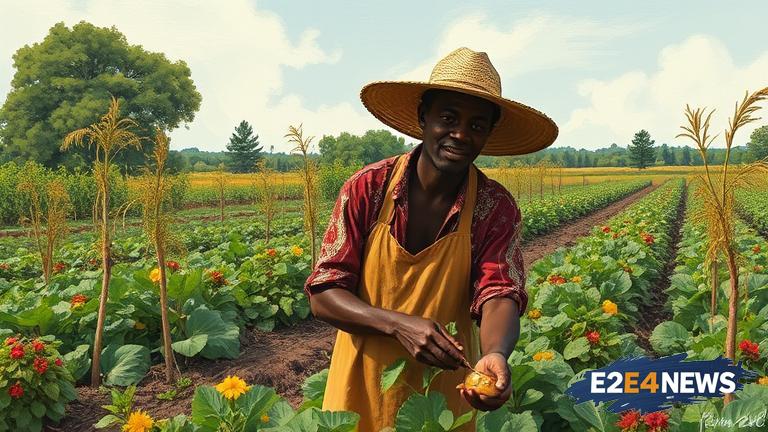The farming industry on Long Island is undergoing a significant transformation, thanks to the efforts of a new generation of Black and Indigenous farmers. These individuals are not only breaking down barriers but also introducing fresh perspectives and innovative approaches to agriculture. At the forefront of this movement is the Rocky Point-based farm, which has become a hub for Black and Indigenous farmers to share knowledge, resources, and expertise. By leveraging their collective experience and skills, these farmers are working to create a more sustainable and equitable food system. One of the key drivers of this movement is the desire to reconnect with ancestral traditions and cultural heritage. For many Black and Indigenous farmers, agriculture is not just a means of producing food, but also a way to preserve cultural identity and community. By embracing their roots and honoring the land, these farmers are able to cultivate a deeper sense of purpose and meaning in their work. Furthermore, the rise of Black and Indigenous farmers on Long Island is also driven by a growing demand for diverse and locally sourced produce. Consumers are increasingly seeking out unique and authentic products that reflect the cultural heritage of the region. In response, Black and Indigenous farmers are developing innovative products and services that showcase the rich culinary traditions of their communities. From heirloom vegetables to artisanal cheeses, these farmers are producing a wide range of delicious and distinctive products that are gaining popularity among local foodies. Despite the many challenges they face, including limited access to land, capital, and markets, Black and Indigenous farmers remain committed to their vision of a more just and sustainable food system. Through their tireless efforts, they are helping to build a more resilient and diverse agricultural industry that benefits both people and the planet. As the movement continues to grow and evolve, it is likely that we will see even more innovative and exciting developments in the years to come. From farm-to-table restaurants to community-supported agriculture programs, the possibilities for collaboration and creativity are endless. By supporting Black and Indigenous farmers, consumers can play a critical role in promoting diversity, equity, and inclusion in the agricultural industry. Moreover, the rise of Black and Indigenous farmers on Long Island also highlights the importance of preserving cultural heritage and traditional knowledge. By honoring the past and embracing the present, these farmers are able to create a brighter future for themselves, their communities, and the environment. In addition to their contributions to the local food system, Black and Indigenous farmers are also helping to promote environmental sustainability and conservation. By using regenerative practices and permaculture principles, these farmers are able to minimize their impact on the land while maximizing their yields. As a result, their farms are becoming important habitats for wildlife and biodiversity, and are helping to mitigate the effects of climate change. Overall, the story of Black and Indigenous farmers on Long Island is one of hope, resilience, and transformation. It is a testament to the power of community, culture, and innovation to create positive change in the world. By celebrating and supporting these farmers, we can help to build a more just, equitable, and sustainable food system that benefits everyone.
